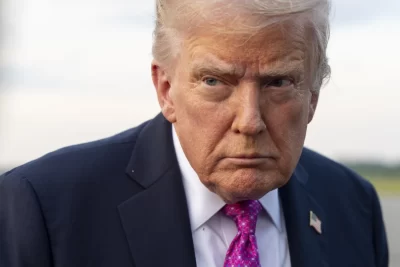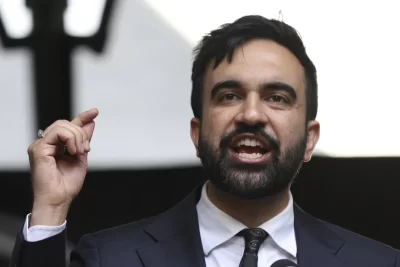
Bangladesh has gained the confidence of foreign nations as the country is largely on the right track under the interim government led by Professor Muhammad Yunus,” Foreign Affairs Adviser Md Touhid Hossain said.
“There was a sense of doubt among our foreign friends. They wondered what was happening here and what would follow. I believe we could, by and large, reassure them that Bangladesh is moving in the right direction,” he told BSS on completion of the six months of the interim government.
Touhid, a career diplomat, however, said some “hiccups” were inevitable and widely understood after the political transition Bangladesh went through after the uprising.
“We have managed to overcome those challenges and have received overwhelming global support,” he said while replying to a question on the government’s achievements regarding foreign relations in the past six months.
Touhid said the country was progressing in the right direction in terms of economy or politics and “we have successfully convinced the international community regarding this”.
YUNUS’S LEVERAGE
The adviser said being the head of the interim government, Nobel Laureate Professor Yunus in past six months attended several high-profile international gatherings and drew due respect.
“We have been able to positively leverage Yunus’s global image in our diplomatic engagements,” he said.
The foreign adviser said things were moving forward in terms of trade and business as well despite fears among many that Bangladesh exports would suffer in the rocky transition period.
Touhid said the government could also handle issues regarding remittances.
“The interim government aims to maintain good relations with every country, and we believe we have successfully done so,” he added.
BANGLADESH-PAKISTAN RELATIONS
Touhid said there was no reason to maintain a “strained relationship” with Pakistan.
“There was an intentional effort (during the Awami League regime) to keep relations with Pakistan strained, but we have worked to bring normalcy in bilateral ties. Pakistan took an initiative to improve ties (as well), and we have welcomed it,” he said.
The adviser said Bangladesh and Pakistan, both South Asian countries, share mutual interests. He also said the resumption of maritime connectivity between the two countries would bring benefits for both nations.
He said that there were issues which remained unresolved between the two countries even after 53 years of Bangladesh’s independence but “if we remain fixated on those issues, neither side will benefit”.
“We will, of course, try to protect and recover our interests, but at the same time, we want to view our relations with Pakistan as we do with any other country,” the adviser said.
He said by now Bangladesh allowed Pakistani private airline Jinnah Air to resume direct Karachi-Dhaka flights after a decade.
The adviser said Pakistan’s Deputy Prime Minister and Foreign Minister Ishaq Dar was expected to visit Dhaka in April.
BANGLADESH-INDIA RELATIONS
Hossain acknowledged that a sense of unease prevailing in Dhaka-New Delhi relations and “there is no benefit in denying it”.
He also acknowledged complexities stemming from deposed prime minister Sheikh Hasina’s stay in India following her resignation amid a political upheaval.
“A sense of unease has developed in Bangladesh-India relations … from our side, we have made efforts to resolve this discomfort with New Delhi,” Touhid said.
But, the adviser said the interim government’s objective was to establish a relationship with India that could ensure mutual benefits and secure both nations’ interest and “that effort continues”.
He said bilateral interactions, including Professor Yunus’s telephone conversation with Indian Prime Minister Narendra Modi and meeting with Indian External Affairs Minister S Jaishankar on the UN General Assembly sidelines set the stage for improved ties.
“There may be a few hiccups — it’s normal. Hiccups happen when there are significant changes. We aim to create a good working relationship by overcoming these issues for the benefit of both sides,” he said.
BANGLADESH-CHINA RELATIONS
Touhid said Dhaka was able to reassure China regarding its policy stance while during his recent visit to Beijing.
He said extensive discussions were held on bilateral matters, development projects, and trade.
“Several key issues were discussed, and we are hopeful that the relationship will remain on the right track and continue progressing,” he said.
The adviser said all previous governments maintained good relations with China, and “we aim to continue this”.
He said Bangladesh’s engagements with Western nations would not affect its ties with Beijing.
China has reaffirmed its commitment to strengthen bilateral cooperation and maintain a policy of non-interference in Bangladesh’s internal affairs.
Hossain also announced that China decided to designate two to three hospitals in Kunming, the nearest Chinese city to Dhaka for Bangladeshi patients as they were facing difficulties in obtaining Indian medical visas.
Touhid visited Beijing from January 20-24 at the invitation of his Chinese counterpart Wang Yi, during which he held a bilateral meeting and visited Shanghai to engage with Chinese business leaders.
“We discussed all our bilateral matters, including development projects and trade. I requested Beijing to lower interest rates on loans and extend the loan repayment period from 20 years to 30 years,” he said.
The adviser said the Chinese foreign minister “assured me of extending the loan repayment period and promised to look into the request for a reduction in interest rates”.
BANGLADESH-US RELATIONS
Touhid said Dhaka does not expect major changes in Bangladesh-US relations due to Donald Trump’s assumption of the US presidency following the election of his country.
“We have nothing to speculate,” he said, expressing optimism that relations with Washington will remain stable.
Regarding Trump’s decision to cut aid, the adviser described it as “expected” and reminded all that USAID’s temporary aid suspension was not targeted at any particular country.
“The new US administration has introduced policies that differ significantly from its predecessor. We will have to wait and see the final outcome and adapt accordingly,” he said.
The adviser added: “When new challenges arise, we must work strategically to safeguard our national interests.”
BALANCED FOREIGN POLICY
The foreign adviser said Bangladesh must maintain balanced relations with India, China, and the United States, as all three nations hold strategic importance for the country.
He highlighted trade ties between India and China despite their geopolitical tensions, as well as India’s close relationship with the US, to emphasize Bangladesh’s need to maintain good relations with all three nations.
“Our relations with India, China, and the US are very important. We will surely maintain balanced relations with these three countries while protecting our own interests,” Touhid said.




